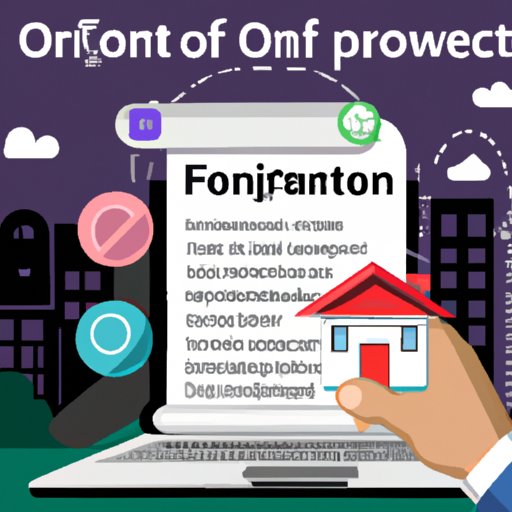Introduction
Owner financing is an alternative to traditional mortgages when it comes to purchasing a home. This type of agreement is made between a home buyer and the seller when the buyer does not qualify for a loan. Instead, the seller provides the buyer with the financing needed to purchase the property, and the buyer pays back the loan over time.
The benefits of owner financing include lower down payments, more lenient credit requirements, and flexible repayment terms. However, there are certain risks associated with this type of transaction that should be considered before moving forward.

Negotiating an Owner Financed Home Purchase
When negotiating an owner financed home purchase, the first step is to identify motivated sellers. These are typically sellers who are in need of a quick sale or have difficulty finding a buyer through traditional methods. Once you’ve identified a potential seller, research the property and market conditions to ensure that the price is reasonable and the area is desirable.
Next, make an offer and negotiate the terms. You’ll want to discuss the total purchase price, down payment, interest rate, length of the loan, and other important details. Be sure to get any agreements in writing and seek legal counsel if necessary.

Necessary Legal Documents for Owner Financing
Once you’ve negotiated the terms of the purchase, there are several legal documents that must be completed in order to finalize the transaction. These include a promissory note, which outlines the buyer’s promise to repay the loan; a deed of trust, which secures the loan with the property as collateral; and disclosure statements, which provide details about the terms of the loan.
It’s important to have these documents reviewed by a lawyer prior to signing them. This will ensure that your rights and interests are protected throughout the process.
Pros and Cons of Owner Financing
As with any type of real estate transaction, there are both advantages and disadvantages to owner financing. Some of the advantages include lower down payments, more lenient credit requirements, and flexible repayment terms. Additionally, the seller may be willing to customize the loan to meet the needs of the buyer.
On the other hand, there are some risks associated with owner financing. If the buyer defaults on the loan, the seller is responsible for taking back the property and finding a new buyer. In addition, the interest rate may be higher than what is offered by traditional lenders, and the buyer may be subject to additional fees and penalties.
Finding Homes with Owner Financing Available
There are several ways to find homes that offer owner financing. One way is to connect with realtors who specialize in this type of transaction. These professionals can help you identify potential properties and guide you through the process. Additionally, there are online platforms that allow buyers and sellers to connect directly. Finally, networking with local investors may also yield results.

Resources for Further Education on Owner Financing
If you’re interested in learning more about owner financing, there are several helpful resources available. Books like “The Complete Guide to Owner Financing” by Mark Weisleder provide a comprehensive overview of the process. Professional organizations such as the National Association of Realtors also offer educational materials on the topic. And there are numerous online courses available for those who want to dive deeper into the subject.
Conclusion
Owner financing is an attractive option for home buyers who don’t qualify for traditional mortgages. There are several advantages to this type of purchase, including lower down payments, more lenient credit requirements, and flexible repayment terms. However, there are also risks associated with owner financing that should be considered before moving forward.
Finding homes with owner financing available requires research and networking. Connecting with realtors, utilizing online platforms, and reaching out to local investors can all help to identify potential properties. Additionally, there are many resources available to further educate yourself on this topic.
(Note: Is this article not meeting your expectations? Do you have knowledge or insights to share? Unlock new opportunities and expand your reach by joining our authors team. Click Registration to join us and share your expertise with our readers.)
